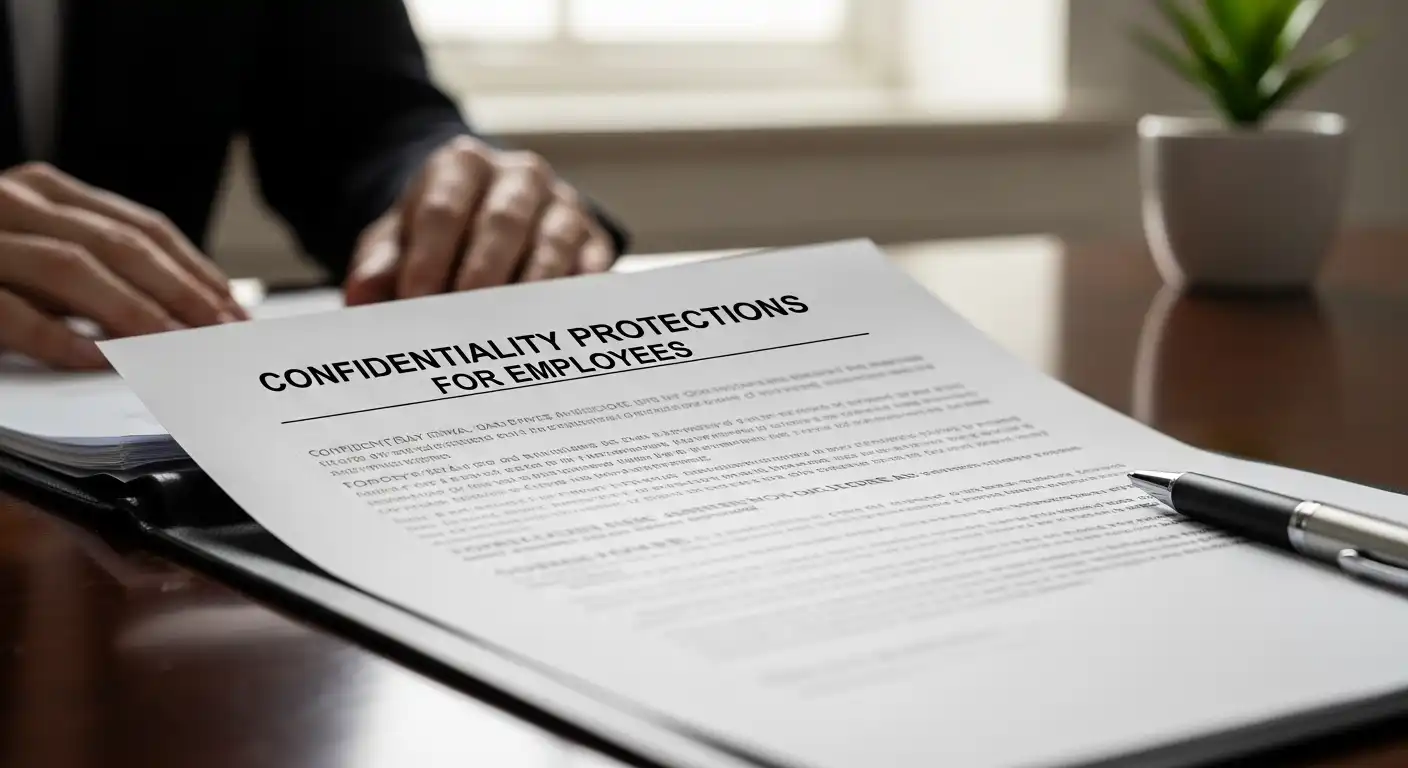Types of Misconduct That May Justify Whistleblowing
Whistleblowers report a wide variety of misconduct that may pose significant risks to public health, safety, or legal integrity. Some common types of misconduct that may justify whistleblowing include:
 1. Fraud and Financial Misconduct
1. Fraud and Financial Misconduct
Whistleblowers often expose fraudulent activities, including financial fraud, accounting irregularities, and deceptive business practices. These types of misconduct may involve misleading financial statements, misappropriation of funds, or accounting practices that violate U.S. Securities and Exchange Commission (SEC) regulations.
Example: A company misrepresents its earnings in financial reports filed with the SEC, thereby misleading investors and violating the Sarbanes-Oxley Act. An employee who reports this violation could be protected under SOX.
2. Health and Safety Violations
In industries such as construction, manufacturing, and healthcare, whistleblowers may report serious health and safety violations. These may include unsafe working conditions, failure to comply with Occupational Safety and Health Administration (OSHA) standards, or neglect of workplace safety protocols that jeopardize employees’ well-being.
Example: A hospital employee reports the unsafe disposal of hazardous medical waste, which violates OSHA regulations and puts staff and patients at risk.
3. Environmental Violations
Whistleblowers also play a crucial role in protecting the environment. They may report pollution, illegal dumping, or violations of environmental protection laws, such as those enforced by the Environmental Protection Agency (EPA).
Example: An employee within an industrial facility notices hazardous chemicals being illegally discharged into nearby water bodies, violating the Clean Water Act.
4. Discrimination and Harassment
Workplace misconduct related to discrimination or harassment, including sexual harassment, racial discrimination, and violations of Equal Employment Opportunity (EEO) laws, is also often reported by whistleblowers. Federal protections like Title VII of the Civil Rights Act offer safeguards for those who report these violations.
Example: An employee may report that a supervisor is consistently promoting individuals based on their gender, violating Title VII’s prohibition of gender discrimination in hiring and promotions.
5. Corruption and Bribery
Whistleblowers can also expose corrupt practices and bribery within organizations, especially in government contracts or corporate dealings. The Foreign Corrupt Practices Act (FCPA) protects those who report bribery related to foreign business transactions.
Example: An employee at a multinational corporation may report that a company representative is offering bribes to foreign officials in exchange for business contracts.
Protections for Whistleblowers: Legal Safeguards Against Retaliation
The core purpose of whistleblower protections is to ensure that employees can report misconduct without fear of retribution. In practice, this means that whistleblowers are entitled to several key legal safeguards:
1. Retaliation Protection
One of the fundamental elements of whistleblower protection laws is ensuring that whistleblowers are free from retaliation, which can take various forms:
- Termination: The most obvious form of retaliation is wrongful termination. Whistleblower protection laws ensure that an employee cannot be fired for reporting misconduct.
- Demotion or Harassment: In some cases, employees may face demotion or workplace harassment as a form of retaliation for speaking up. These acts are illegal under whistleblower protection laws.
- Discriminatory Actions: Employers are also prohibited from taking discriminatory actions against whistleblowers based on their report. This includes denying promotions, salary increases, or benefits.
2. Confidentiality Protections

Whistleblower confidentiality is another key safeguard. Many whistleblower protection laws require that the identity of the person reporting misconduct be kept confidential to prevent retaliation or other harm.
However, there are exceptions, particularly when the whistleblower must testify in court or provide evidence in an investigation.
3. Compensation for Retaliation
In cases where retaliation occurs, whistleblowers can seek compensation. Remedies available under whistleblower protection laws include:
- Reinstatement: If an employee is wrongfully terminated or demoted, they may be entitled to reinstatement to their original position.
- Back Pay: Employees who are wrongfully dismissed may also receive back pay, which compensates them for wages lost due to retaliation.
- Punitive Damages: In certain cases, whistleblowers may be awarded punitive damages in addition to compensatory damages.
 4. Legal Assistance for Whistleblowers
4. Legal Assistance for Whistleblowers
Whistleblowers can also seek legal representation to protect their rights. A whistleblower attorney can help navigate the complex legal landscape, including filing complaints with the appropriate agencies or courts and ensuring that all procedural requirements are met.
Reporting Misconduct: Steps to Take for Legal Safeguards
Reporting misconduct can be a daunting decision, but understanding the process and legal protections in place can make it easier. Here’s a guide on how to navigate this process:
1. Report Internally First (If Possible)
If you are working within a private company, it’s usually best to start by reporting misconduct internally. Most organizations have an ethics hotline, internal reporting system, or designated individual (such as a compliance officer) who can receive these reports. The benefit of internal reporting is that it allows your company an opportunity to address the issue before taking external legal action.
However, if the organization is complicit in the wrongdoing or if you fear retaliation, reporting to an external agency may be the best option.
2. File a Complaint with a Government Agency
If internal reporting is not an option or doesn’t resolve the issue, you can report misconduct to government agencies such as:
- U.S. Department of Labor: The DOL’s Whistleblower Protection Program enforces over 20 laws protecting employees from retaliation.
- Securities and Exchange Commission (SEC): If you’re dealing with securities fraud or corporate malfeasance, the SEC has a dedicated whistleblower program offering significant financial incentives.
- Occupational Safety and Health Administration (OSHA): OSHA provides protections for employees who report workplace safety violations.
3. Understand the Statute of Limitations
Be aware that most whistleblower protection laws have specific time limits in which you must file a complaint. For instance, under the Sarbanes-Oxley Act, a whistleblower has 180 days from the date of the retaliation to file a complaint. Make sure to consult legal counsel to ensure timely filing.
4. Document All Interactions
To protect yourself, keep a detailed record of all communications related to the misconduct and your report. This may include emails, memos, and notes from any meetings or calls. Documentation serves as a vital piece of evidence should you need to prove retaliation later.
Conclusion
Whistleblower protections are critical in maintaining ethical practices and accountability across various industries. The U.S. legal system has established multiple safeguards to protect individuals from retaliation when they report misconduct. While whistleblowing can be a challenging decision, knowing your legal rights and protections can help you take appropriate action without fear of repercussion.
Whether you’re in the private or public sector, it’s important to understand the laws that safeguard whistleblowers. If you ever find yourself in a situation where reporting misconduct is the right thing to do, remember that there are legal protections in place to support you throughout the process.
If you need legal guidance, consider consulting with an attorney who specializes in whistleblower cases to better understand your options and protect your rights.

 1. Fraud and Financial Misconduct
1. Fraud and Financial Misconduct 4. Legal Assistance for Whistleblowers
4. Legal Assistance for Whistleblowers